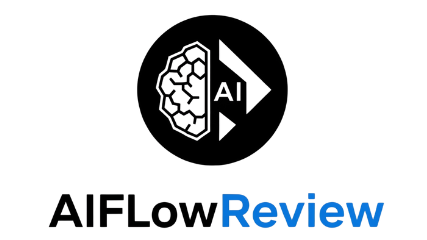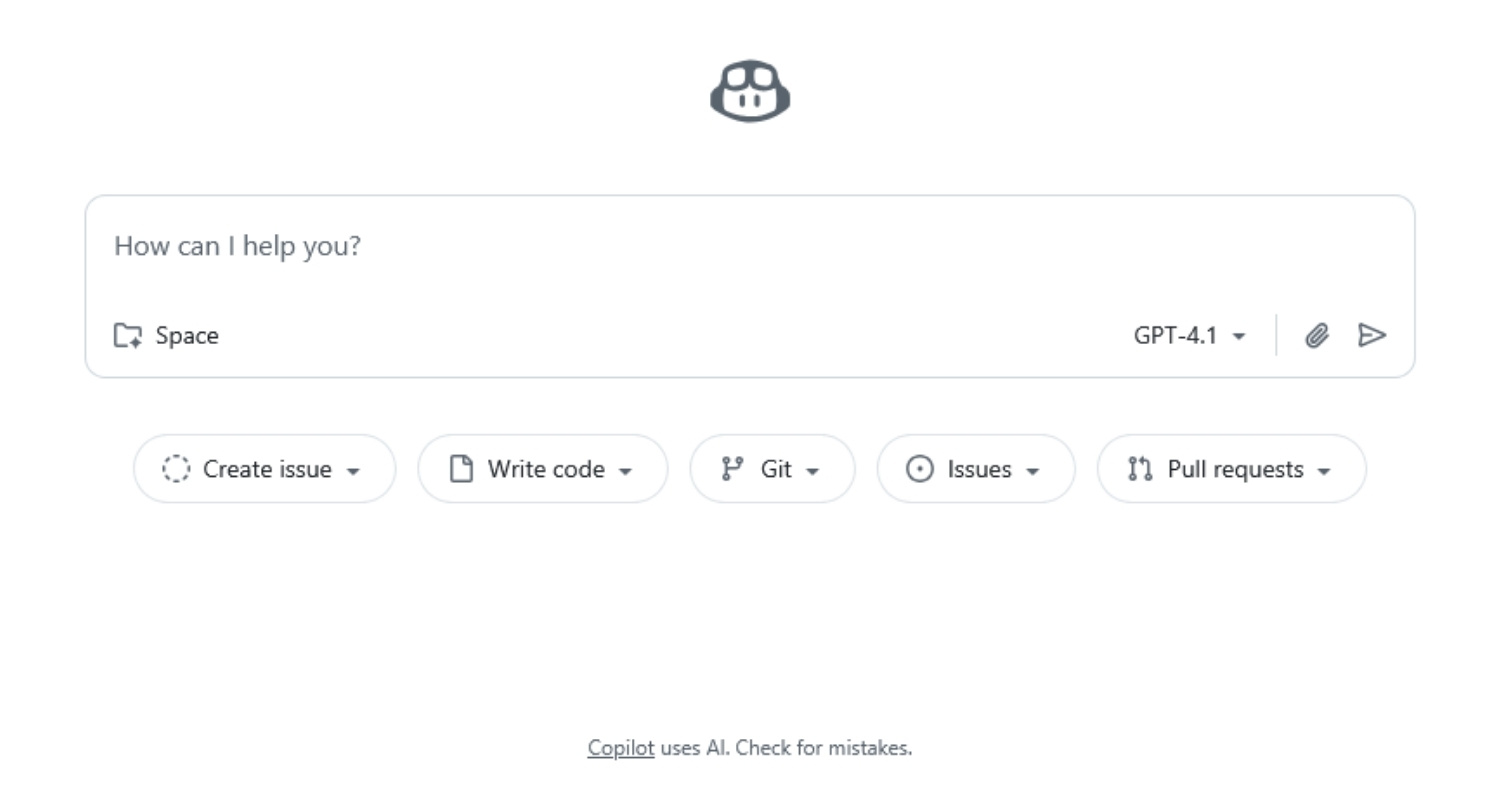I’m putting Github Copilot review because I want to see if it truly speeds up my daily coding work. My goal is to give clear, first-hand insight into how Copilot performs on tasks that real developers face. I’ll cover its core features, pricing, coding speed and accuracy, how well it understands context, and how it stacks up against other top AI coding assistants.
I don’t just list what works. I look for where Copilot falls short, especially with complex logic, multi-file projects, and error handling. After hands-on use, I rate Github Copilot an 8 out of 10. It’s strong at producing boilerplate and saving time on simpler tasks, though errors and context limitations remain. If you want more ways to compare Copilot against other AI code helpers, check my guide to the best AI coding assistants in 2025.
Core Features and IDE Integration
GitHub Copilot stands out among AI coding assistants for its deep integration within the developer workflow. It operates directly inside the code editor, providing proactive help right when and where it’s needed. Thanks to the blend of seamless context awareness, adaptable suggestions, and support for modern IDEs, Copilot earns a solid 8 out of 10 for overall power and utility in this “github copilot review”.

AI‑Powered Code Suggestions
Copilot excels at predicting and generating entire lines or even complete functions as I type. Its underlying model draws from vast public code repositories and understands not just isolated keywords, but also the surrounding project context. This means whether I start writing a function definition, a unit test, or even a docstring, Copilot knows how to finish my thought.
Language coverage is broad and practical:
- JavaScript, TypeScript, Python, Go, Ruby, and Java are strongly supported.
- Copilot also helps in C#, C++, Rust, PHP, Shell scripting, SQL, and more.
- It’s adaptive across web, backend, data, and scripting tasks.
In daily coding, I’ve found that Copilot predicts boilerplate code swiftly, reduces context-switching, and spots common patterns. It helps prevent typical mistakes and often provides smarter alternatives, especially for repetitive or routine code. For advanced tips on using Copilot efficiently, GitHub’s official best practices page is worth a look.
Copilot Chat and Advanced Models
The introduction of Copilot Chat takes in-editor assistance further. By blending a conversational interface inside supported IDEs, Copilot allows me to ask questions in natural language and get instant answers, guidance, or even code edits right within my workflow.
Key benefits include:
- Debugging support: Ask Copilot to explain errors, suggest fixes, or describe what a function does.
- Documentation on demand: Generate and edit docstrings, comments, or markdown from basic prompts.
- Use of advanced OpenAI models: The chat experience feels faster and smarter in 2025, leveraging improvements in model capability and context memory.
I can prompt Copilot Chat not only for explanations but also for multi-step changes—like refactoring code across files, reviewing updates, or generating test cases. It’s a bit like having a junior developer always available for code review or brainstorming. For a detailed feature list, the GitHub Copilot features page offers an in-depth breakdown.
Supported IDEs and Extensions
Copilot’s appeal hinges on how smoothly it integrates with popular development environments. Setting it up is straightforward and doesn’t require advanced configuration skills. Here’s a look at the main editors where Copilot really shines:
- Visual Studio Code
- Visual Studio (2022 and later)
- JetBrains IDEs (such as IntelliJ IDEA and PyCharm)
- Neovim
- Eclipse IDE
- Command-line interfaces (limited support)
- GitHub.com web editor and GitHub Mobile
For each supported IDE, you usually just install the Copilot extension or plugin from the integrated marketplace, sign in with your GitHub account, and enable suggestions. JetBrains IDEs require downloading the official plugin, then activating it via the IDE settings. A helpful complete guide to Copilot in 2025 breaks down installation steps for every major editor.
If you’re considering Copilot versus other assistant tools, check out this broader AI coding assistants for developers comparison to see how Copilot matches up on extension support, prompt handling, and enterprise readiness.
From smart code generation to conversational debugging, Copilot provides a solid toolkit to help modern developers focus on building features, not wrangling syntax or boilerplate. Its rating holds strong at 8/10, especially for seamless IDE integration and practical assistance.

Pricing Plans and Free Options
Choosing the right GitHub Copilot plan is important for developers and teams who want to improve productivity and control costs. Copilot offers individual, team, and enterprise pricing along with special free access for select users. In this section, I break down the options so you know what’s included and how to pick the best fit based on your needs.
Individual Subscription Details: What You Get with Copilot Pro
The individual Copilot Pro plan is designed for solo developers and independent professionals. With this subscription, I get:
- Full Copilot integration in supported IDEs (Visual Studio Code, JetBrains, and others).
- Unlimited code completion and in-editor Copilot Chat.
- Access to all available AI models, including the latest advanced OpenAI models.
- Priority support for code suggestions and faster request handling.
- Up to 1,500 premium Copilot Chat requests per month. If I hit this cap, extra requests cost a small fee per use, but I almost never run into this limit during normal work.
The price for the Copilot Pro individual plan starts at $10 per month, with a 30-day free trial if you want to test it first. Billing is clear, and there’s no complicated setup to get started. The value is especially strong for anyone working on personal projects, client work, or exploring new technologies. More details can be found on the official GitHub Copilot plans and pricing page.
Team and Enterprise Packages: Extra Features for Collaboration and Security
When you upgrade to Copilot for Teams or Enterprise, you unlock a set of features built with collaboration and security in mind. These advanced packages are best suited for companies, classrooms, or groups that need to manage access and enforce policy controls.
Key benefits include:
- Organization-wide billing (one invoice, multiple users).
- Access controls for who can use Copilot across projects.
- Policy management tools, including security restrictions and content filtering.
- Single Sign-On (SSO) for easier user authentication and safer onboarding.
- Integrated analytics to monitor usage, measure ROI, and track adoption across teams.
The team and enterprise packages start at around $19 per user per month, but costs can scale depending on contract and added features. For an in-depth look at cost breakdowns and what each tier includes, the Copilot pricing guide lays out the details in plain language.
Free Access for Education and Open Source: Who Qualifies and How to Claim
GitHub recognizes the importance of supporting the education sector and open source communities. Copilot provides free access to:
- Verified students, through the GitHub Student Developer Pack.
- Teachers and verified faculty at accredited institutions.
- Maintainers of popular open source projects.
To claim a free Copilot license, eligible users must authenticate their status. Students and teachers sign up through their school email or by connecting accounts via the GitHub Education portal. For open source maintainers, eligibility depends on maintaining a major project with active contributions in the public interest. GitHub provides step-by-step instructions during the sign-up process, so you can verify and activate free Copilot service with just a few clicks.
If you want to see how these Copilot perks compare to other AI coding assistants, my side-by-side review of 2025’s top options covers which tools go the extra mile for students, teams, or open source contributors.
Copilot scores a solid 8 out of 10 in value for money, especially for developers who use it daily. The clear pricing, flexible options for teams, and robust support for education make Copilot a well-rounded choice in any github copilot review. For the full scope of current plans, including terms and support resources, check out the official individual plan details and team pricing pages.
Real‑World Performance and Limitations
As I’ve explored Github Copilot for this “github copilot review,” it’s clear that its real-world impact is shaped by both measurable productivity gains and several practical boundaries. While Copilot stands out for fast code generation and broad language support, there are persistent challenges involving accuracy, depth of understanding, and security. Concrete data, developer feedback, and my own usage have shown what Copilot does best—and where a human developer still rules.

Productivity Gains and Accuracy
Statistics and real-world studies paint a mixed but often positive picture of Copilot’s impact on productivity and code quality. According to GitHub’s research, developers using Copilot complete tasks up to 55% faster than those going solo. This is a significant lift for routine work like writing tests or boilerplate code, where Copilot’s suggestions often hit the mark. In one published study, 53.2% of Copilot users passed all unit tests on their first attempt compared to non-users, demonstrating a tangible boost in code correctness for common patterns (Does GitHub Copilot improve code quality?).
From developer surveys, a large majority say Copilot saves them between 5% and 20% of coding time each week. However, these time savings are sometimes offset by the need to check, correct, or refactor AI-generated output. Based on my hands-on experience, Copilot feels strongest during early design or repetitive coding sessions, but the savings diminish during complex debugging or when requirements shift mid-task.
A recent industry analysis notes that while 90% of developers felt productivity improved in some tasks, real-world results can swing depending on project size and complexity (ROI & productivity data). If speed is your main goal—writing stubs, tests, or everyday functions—Copilot is a clear time saver. For novel or tricky problems, it still needs a guiding hand.
Supported Languages and Edge Cases
Copilot covers a wide selection of programming languages, but its performance varies greatly across them. JavaScript and Python are its strongest suits, giving relevant, almost human-like suggestions for most web, scripting, and data science work. In my day-to-day, it consistently filled in repetitive logic and test cases without much editing.
Other supported languages include:
- TypeScript
- Go
- Java
- Ruby
- C#, C++, PHP
- Shell scripting and SQL
However, the quality of suggestions decreases as you step outside the mainstream. For C# and C++, Copilot can struggle with syntax, context awareness, and multi-file architectures. It has a tendency to “invent” methods or properties that don’t exist in your codebase—a known issue sometimes referred to as “hallucination.” When working on specialized frameworks or domain-specific languages, Copilot often needs more nudging, and outputs sometimes require a full rewrite.
Rare edge cases push Copilot’s limits:
- Deeply nested project structures or legacy code
- Custom build systems or proprietary libraries
- Business logic that relies on domain knowledge
These scenarios reveal Copilot’s weaknesses in extrapolating code intent beyond surface patterns. This is a recurring theme in other assistant reviews, like the Claude review 2025, where advanced assistants also hit boundaries in context-heavy environments.
Known Limitations and Security Concerns
Despite all its strengths, Copilot is not a set-it-and-forget-it tool. It struggles most with complex architectures, large codebases, and nuanced, business-specific logic. For multi-file or cross-module changes, it often loses context and can propose risky or flat-out wrong changes. It’s not uncommon to find Copilot generating invalid syntax in C#, missing critical null checks, or hallucinating API calls—issues I spot daily that demand careful review.
Security is another area where Copilot faces ongoing concerns:
- Generated code sometimes exposes common security mistakes (like insecure random number usage or misapplied input validation).
- Copilot may unintentionally reproduce code snippets seen in public repos, raising possible licensing or copyright questions.
- Enterprise and regulated environments, especially in finance or healthcare, must deploy extra review layers to avoid leaking sensitive patterns or credentials (GitHub Copilot security risks).
All Copilot suggestions must be checked for:
- Privacy issues (accidentally exposing secrets)
- Suitability with your organization’s architectural standards
- Compliance with local or industry regulations
Skill erosion or dependence is a valid debate. Junior devs, in particular, risk missing out on learning key debugging or architectural skills if Copilot does most of the legwork. I still recommend reviewing every line Copilot generates before merging.
For a systematic look at how leading AI code assistants compare on practical strengths and security controls, I suggest my AI tool comparison guide. Here, I break down how Copilot stacks up in real developer workflows—including where careful oversight is a must.
Rating for Real-World Performance (2025): 8 out of 10.
Copilot is excellent for boosting productivity in the right hands, but demands strong human oversight for high-quality code, complex projects, and secure deployments. I always treat it as an accelerant, not a substitute for experience.
Comparison with Competing AI Coders
In the crowded market of AI coding assistants, it’s important to see how Github Copilot holds up against its strongest rivals. Many tools target speed, accuracy, multi-language support, and smart chat features, but each brings its own strengths and trade-offs. For this github copilot review, I’ll break down what really matters: how Copilot matches up on features, price, and the areas where it stands out most.
Feature Parity and Gaps: List which tools offer similar completions and which lack chat
AI-assisted coding is now a standard across the top products, but the depth of those features varies. Github Copilot, Windsurf (formerly Codeium), Tabnine, Amazon Q Developer, Cursor, Supermaven, Zencoder, and Sourcegraph Cody all deliver AI code completions that work for a wide range of languages and workflows.
Most major options, including Copilot, now feature a chat interface for natural language prompts, debugging tips, and code explanations. Yet not every competitor offers chat out of the box. Here’s a quick rundown for 2025:
- Copilot: Robust AI completions, in-editor chat, advanced conversational help.
- Windsurf (Codeium): Unlimited completions, integrated AI chat, strong language support, free and paid plans.
- Tabnine: Completions and chat, privacy focus, supports private model training.
- Amazon Q Developer: Completions, integrated chat, tailored for AWS pipelines.
- Zencoder: Completions, chat, Repo Grokking™ for deep code context.
- Supermaven: Fast completions, chat, large context window.
- Sourcegraph Cody and Cursor: Both offer smart completions and AI chat.
That said, some open-source options like Tabby may lag when it comes to built-in chat or agent-like workflows. For teams that prioritize privacy or custom model training rather than in-editor chat features, tools like Tabby and Tabnine’s self-hosted options fill a unique need but ask for more setup.
For a deeper rundown of workflows and chat support in rival tools, you can scan the curated list of top Copilot alternatives.
Price‑to‑Value Analysis: Show how Copilot’s pricing stacks up against alternatives
Price-sensitive developers and teams will notice clear splits in the market. Github Copilot keeps its pricing simple: $10/month for individuals and around $19/month for team users, with discounts for annual plans and verified education or open source projects.
Here’s a snapshot view of how Copilot sits with similar tools:
| Tool | Individual Price | Team/Pro Price | Core Features |
|---|---|---|---|
| Copilot | $10/mo | $19/mo | AI code, chat, GitHub integration |
| Windsurf (Codeium) | Free/$15/mo | $15/mo+ | AI code, chat, multi-language, unlimited free |
| Tabnine | $9/mo | $15/mo+ | Completions, chat, private/self-host options |
| Sourcegraph Cody | $19/mo | $19/mo+ | AI code, chat, deep project context |
| Cursor | $20/mo | $20/mo+ | AI-powered editor, chat, migration |
| Amazon Q Developer | $19/mo | — | AWS-optimized, chat, security |
| Zencoder | $19/mo | $39/mo | Advanced AI, deep repo analysis, chat |
Some alternatives, like Windsurf, provide generous free tiers with unlimited use for individuals, while Sourcegraph Cody and Cursor skew higher but target complex, corporate codebases. Cloud-focused tools, such as Amazon Q Developer, price similarly to Copilot but bundle in infrastructure integrations that might be overkill for non-AWS teams.
Most paid options (Tabnine, Cody, Cursor) land near Copilot’s monthly rate, but some, including self-host and enterprise versions, can be much higher. Tabby stands out by offering self-hosted features for privacy and control, a feature often lacking in competitor chat products.
For a full side-by-side breakdown, visit the 9 GitHub Copilot alternatives in 2025 guide.
Unique Strengths of Copilot: Highlight integration with GitHub, repo‑aware suggestions and community support
While many tools now match Copilot’s core features, none have its unique blend of GitHub-centric integration, community, and deep repository context. Copilot draws on the world’s largest code repository, giving its AI the edge with up-to-date patterns, common bugs, and real project data.
Direct advantages for Copilot users:
- Tight GitHub integration: Suggestions adapt to your repo, branch, and even pull requests in real-time. This means smarter, more relevant code completions that actually match your current project context.
- Easy onboarding: One-click enablement for any GitHub-linked IDE, with minimal setup across VS Code, JetBrains, and Visual Studio.
- Community-driven improvements: Copilot benefits from the collective feedback and best practices of millions of open repositories and users. Issues, feature requests, and updates often move faster thanks to a massive user base.
- Open source and educational plans: Free for students and verified educators, plus streamlined access for popular open source maintainers.
No other coding tool has such deep access to GitHub’s live code graph—or receives the same level of direct developer feedback. For anyone committed to the GitHub ecosystem, this alone tips the scales.
Curious how Copilot stacks up against project-specific AI tools and broad productivity platforms? For a complete ecosystem perspective, explore the best AI automation and productivity tools of 2025 or my guide to the best AI coding assistants in 2025 for more on collaboration, privacy, and workflow match.
Github Copilot earns a strong 8 out of 10 in my technical assessment. While competitors push hard on features and price, Copilot still leads on reliability, context, and GitHub synergy—making it the smart pick for most professional developers in 2025.
User Experience, Security, and Final Rating
A “github copilot review” is not complete without a close look at day-to-day usability and controls around privacy and data handling. Here’s my experience with Copilot’s onboarding, ease of use, security safeguards, and why I landed on a final score of 8 out of 10 for 2025.
Ease of Use and Interface Design
Starting with GitHub Copilot is straightforward. The onboarding process rarely takes more than a few minutes. Install the relevant plugin in your IDE, sign in with your GitHub credentials, and Copilot becomes active. First-time users see clear prompts that guide them through the basics, making the learning curve almost flat.
Once enabled, Copilot’s interface feels familiar. Code suggestions appear as light “ghost text” right inside the editor, blending in with your day-to-day workflow instead of disrupting it. The inline chat feature brings conversational help to your cursor, where you can ask direct questions or request code changes. Response times are usually fast, and settings are clearly labeled—there’s no hunting for obscure configuration options.
What stands out:
- Intuitive prompt flow lets me focus on coding, not on figuring out the tool.
- Simple toggles for enabling/disabling Copilot or chat features.
- Minimal lag in most editors, even in large codebases.
If you need to adjust preferences, like toggling between code completion models or restricting Copilot in certain file types, these controls are found directly in the extension’s settings menu. For further guidance on setup or usage, GitHub offers a detailed best practices page.
I’ve found Copilot is especially welcoming for new users, but advanced devs will appreciate the ability to tune responses and modify prompts on the fly. Unlike some AI tools that need constant configuration, Copilot’s “set it and forget it” approach means less fuss every time you start a new project.
Privacy, Data Handling and Enterprise Controls
With Copilot generating code suggestions based on public repositories and user input, privacy is a natural concern. Copilot sends code context, snippets, and prompts to GitHub’s cloud servers for processing. This data is used only for generating real-time suggestions and, if opted in, for improving Copilot’s future accuracy. The tool doesn’t store your code long-term unless you give explicit consent.
For enterprise and business users, Copilot Business and Enterprise plans offer:
- Content exclusion controls to prevent sharing sensitive code with the AI engine.
- Restrictive data policies ensuring organization projects and intellectual property are not retained or used for training.
- Single Sign-On (SSO), audit logs, and user management to maintain strong identity and access practices.
Organizations can enforce policies that block Copilot completely on certain projects or file types, a necessity for teams working in regulated industries like healthcare and finance. According to recent community commentary, Copilot performs best on well-structured codebases and its settings make it adaptable for different environments (GitHub Copilot review March 2025). That flexibility becomes critical when you balance productivity with the risk of data exposure.
It’s worth mentioning: while Copilot’s default behavior is privacy-minded, individual users still need to review auto-generated code for accidental leaks of environment variables, credentials, or proprietary snippets. Routine code reviews and best practices help maintain a safe workflow. Copilot’s new code review feature can also assist with security checks as part of a larger pull request process (Copilot code review launch news).
Final Takeaway
In my hands-on “github copilot review”, Copilot earns its 8 out of 10 score based on solid usability, proactive privacy handling, and flexibility for both individual devs and companies. Most developers will find that Copilot blends into their IDEs with minimal setup and starts adding value within minutes. Its controls for privacy and enterprise readiness are ahead of much of the AI coding pack, and GitHub continues to iterate with features like enhanced audit logs, fine-grained data controls, and even agent-driven refactoring.
Who should use Copilot?
- Daily developers of all skill levels who want to save time on boilerplate or routine tasks.
- Teams needing an AI assistant that respects organizational data rules.
- GitHub-centric projects, where integration and community feedback matter.
Who might look elsewhere?
- Those working in highly regulated sectors who need zero data transfer for compliance.
- Developers who demand granular on-premise control and self-hosted AI.
If you’re seeking a deep dive on other assistant options that stress privacy or support local installations, my guide to the best AI coding assistants in 2025 compares self-hosted and private-cloud tools.
Summary of my experience:
- Ease of use: Smooth onboarding, clear interface, quick to set up
- Security: Strong privacy controls, especially at enterprise level
- Overall score: 8/10
Copilot remains the leading choice for most modern developers in 2025. It fits best for anyone who wants fast, accurate code help with managed risk, and appreciates steady updates from a robust community and the backing of GitHub itself.
Conclusion
Github Copilot now stands as a major force in software development. Its rapid adoption is clear: by 2025, over 15 million developers use Copilot, and for good reason. It speeds up coding, handles a wide range of languages, and blends easily into popular IDEs. Productivity gains are evident—controlled studies and industry data show developers finish tasks up to 55% faster, with Copilot responsible for generating almost half the code written in active projects.
I’ve rated Github Copilot an 8 out of 10 for its balanced mix of power and approachability. The tool fits many workflows, especially for devs working on the GitHub platform or in fast-moving teams. Privacy and compliance features make it a real option for serious business use, though anyone deploying Copilot at scale should plan for regular audits and targeted training to keep code quality high.
If you want a clear side-by-side look at how Copilot compares to other top choices, my best AI coding assistants in 2025 guide breaks down the competition and can help you select the right solution for your stack.
Ready to see how much time you can save? Try Copilot’s free trial for your next project. Thanks for reading my hands-on github copilot review—your feedback shapes the next round of testing, so let me know what tools you want to see next.

















